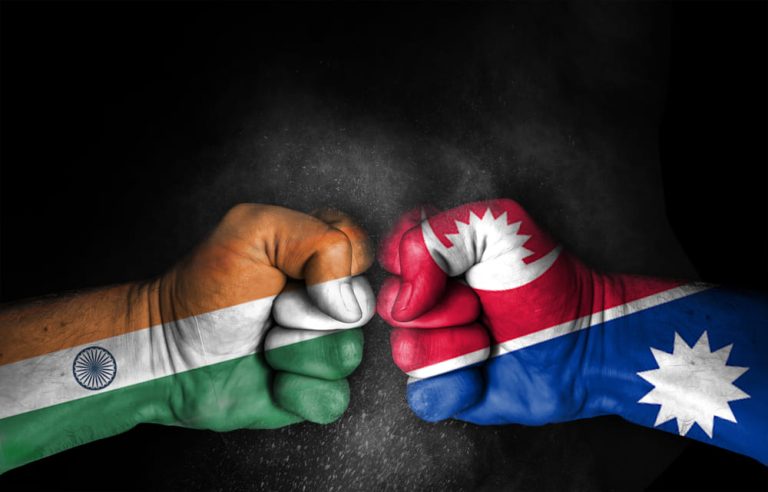On Monday, India and Nepal took a significant step toward improving the water, sanitation, and hygiene (WASH) sector by signing a Memorandum of Understanding (MoU) aimed at bolstering their cooperation in these crucial areas. The agreement also includes a focus on waste management, ensuring a more sustainable future for both nations.
The signing ceremony took place at Sushma Swaraj Bhawan in New Delhi, with two key ministers present: C R Patil, Union Minister of Jal Shakti (India), and Pradeep Yadav, Minister of Water Supply for Nepal. The event underscored the shared commitment of both countries to enhancing public health, improving infrastructure, and promoting regional collaboration on water and sanitation issues.
A Step Toward Stronger Regional Cooperation
The MoU is a reflection of the growing ties between India and Nepal, especially in areas that directly impact public health and the environment. The new agreement outlines a detailed framework for collaboration between the two nations, focusing on the WASH sector. Both countries have recognized the importance of improving access to clean drinking water and sanitation facilities, essential for the well-being of their citizens.
One of the key goals of the agreement is to support Nepal’s efforts in improving water resource management. Nepal will benefit from India’s experience and expertise in areas such as groundwater management, water conservation, and waste management. The agreement also includes provisions for technology transfer, ensuring that both nations can share the latest advancements in water resource management and sanitation technologies.
The Indian Embassy in Kathmandu highlighted the importance of the agreement, tweeting: “India and Nepal are strengthening cooperation in Water, Sanitation, and Hygiene WASH Sector including Waste Management with a new MoU signed by India’s Hon’ble Minister of Jal Shakti Shri C R Patil and Nepal’s Hon’ble Minister for Water Supply Shri Pradeep Yadav today. This initiative will help boost joint efforts by India and Nepal towards water conservation, sanitation, and waste management for a sustainable future.”
Focus on Capacity-Building and Knowledge Sharing
The agreement focuses heavily on capacity-building and training. Nepal will receive support in developing its human resources in the WASH sector. This includes training programs for Nepali officials to improve their knowledge and skills in water resource management, sanitation infrastructure, and other related fields. By strengthening local expertise, the MoU aims to create a sustainable foundation for Nepal’s water and sanitation infrastructure.
In addition to training, the MoU includes provisions for knowledge sharing between India and Nepal. This will involve the transfer of technology, expertise, and best practices in water resource management, including groundwater monitoring and the implementation of artificial recharge techniques. The sharing of successful approaches to rainwater harvesting is also a key component of the agreement.
Nepal’s Minister of Water Supply, Pradeep Yadav, praised India’s success in implementing large-scale clean drinking water and sanitation programs. He acknowledged the need for Nepal to learn from India’s experience, particularly in building large-scale infrastructure. Yadav emphasized the importance of regular meetings and collaboration between both countries to ensure continued progress.
Strengthening India-Nepal Ties Through WASH Initiatives
During the signing ceremony, Union Minister C R Patil highlighted the achievements India has made in improving access to clean drinking water and sanitation across the country. Under Prime Minister Narendra Modi’s leadership, India has made significant progress in expanding access to water and sanitation services, particularly in rural areas. The MoU, Patil noted, is a testament to the strong bilateral ties between India and Nepal and their shared vision for a healthier and more sustainable future.
Patil also emphasized that this initiative would be crucial for both countries as they work together to address regional challenges in water resource management and sanitation. “This MoU reflects our shared commitment to public health, sustainability, and regional cooperation,” Patil said, stressing the importance of continuing to build on these areas of mutual interest.
Minister Yadav also noted that Nepal would send officials to India to visit key sites and learn about best practices firsthand. These visits will serve as a platform for knowledge exchange, ensuring that Nepal’s officials are well-equipped to implement similar initiatives back home.
Diplomatic Support for the Agreement
The ceremony was attended by senior officials from both countries, signaling the importance of this MoU. Naveen Srivastava, Ambassador of India to Nepal, and Shankar Prasad Sharma, Ambassador of Nepal to India, were present at the event, along with other key diplomats and government representatives. The presence of these officials underlined the significance of the agreement as a diplomatic milestone between India and Nepal.
The MoU also highlighted the importance of strong intergovernmental cooperation. It acknowledges that challenges like water scarcity, inadequate sanitation infrastructure, and waste management require joint action. By working together, India and Nepal aim to improve the quality of life for their citizens, especially in rural and underserved areas.
A Bright Future for WASH Cooperation
As India and Nepal move forward with this partnership, the MoU will lay the groundwork for future collaboration in the WASH sector. The focus on water conservation, waste management, and sanitation will help both countries address pressing environmental and health challenges. Furthermore, the exchange of knowledge and expertise will allow them to adopt the most effective solutions for sustainable development.
This agreement is just the beginning of what is expected to be a long-lasting partnership between the two countries in the WASH sector. By working together, India and Nepal can make significant strides toward achieving the United Nations’ Sustainable Development Goal (SDG) 6: ensuring availability and sustainable management of water and sanitation for all.
For more updates on this development and other bilateral agreements, visit Nepal Monitor.


